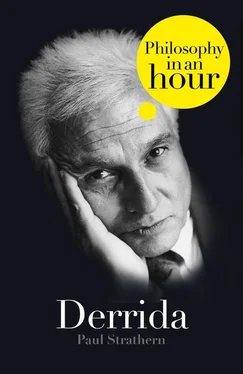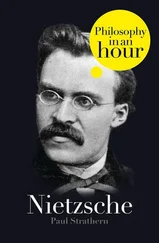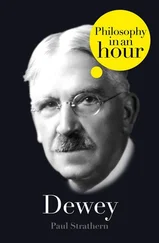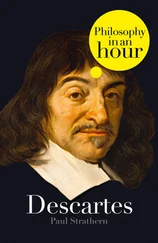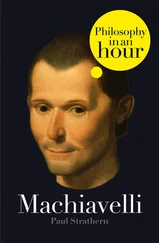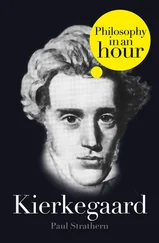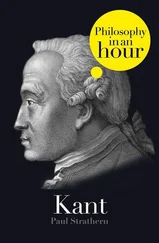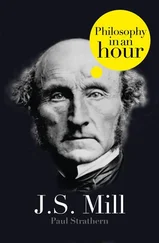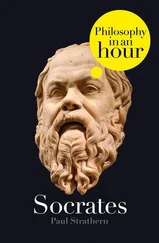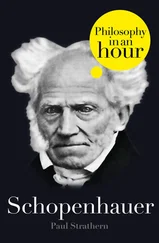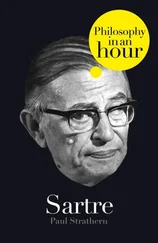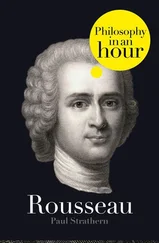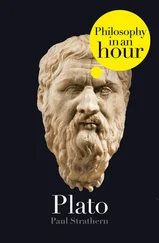Derrida was convinced that this argument contained an aporia , an internal inconsistency which remained irresolvable. And in arguing this in his Introduction to Husserl’s Origin of Geometry , and in later works, he laid the basis for his philosophical attitude. For Derrida’s “philosophy” is not a philosophy as such, it is rather a questioning of philosophy: an “interrogation of its very possibility.” He questions the entire basis of philosophy and its ability to operate on its own terms. The whole structure of philosophy is flawed by an aporia , and as such it cannot be consistent. This was more than an obscure argument about the basis of geometry: it questioned the possibility of philosophy itself. And as such, the grounds of all knowledge.
According to Derrida, Husserl saw geometry as a form of perfect knowledge, which existed in a realm of timeless truth. It was incontestable and remained true regardless of human apprehension or intuition. For Derrida, any possible prehistoric intuition was irrelevant to the way geometry had come to be regarded in history, as the paradigm of all scientific and philosophical truth. This was an ideal truth, beyond the realms of argument. Derrida contested this. Even if the basic concepts of this truth had been historically (or prehistorically) intuited, the truth itself was not grounded in lived experience. According to Husserl, it had already existed “out there,” waiting to be discovered. Hence this truth could not possibly be grounded in lived experience. It was not consciously intuited – the necessary grounding required by phenomenology for all knowledge. Here at the very heart of philosophy was an aporia. By implication, our entire notion of knowledge was inconsistent. Either our knowing was grounded in intuition, or it wasn’t; it couldn’t somehow be both. How do we know that geometry is “out there” waiting to be discovered? And surely we accept geometry as true because we apply logic to it, rather than intuit this? It may be logically consistent within its own terms, but how do we intuit it as knowledge? What basis in our consciousness – the ultimate grounding of our knowledge – do we have for accepting its truth?
Such questions may appear niggling, but their implications affect the whole of Western philosophy and the scientific knowledge that is based upon it. Heidegger had asked similar questions, and in doing so had revealed a hidden assumption that underlay the entire structure of our knowledge. And far from being grounded in individual intuition, this assumption was purely metaphysical. That is, it was somehow above and beyond our physical world. It wasn’t based on experience of any sort. Heidegger showed that the whole notion of Western philosophy, and its attendant scientific knowledge, was based upon the idea that somehow, somewhere, truth itself could be validated in some absolute sense. There was a realm of truth that was not relative. The “somewhere out there” where geometry existed was part of a realm, “a presence,” where absolute truth existed. It also guaranteed all truth. Here truth was validated by its own presence. It existed. (Otherwise it would have been an absence.) This presence was absolute, guaranteeing absolute truth. The identity of this existent presence can be none other than a form of being that knows all things and knows the truth of all things, including itself. This is the meaning of its truth. There is a coincidence of being and knowing in this presence which guarantees the truth of all things.
As Derrida would show, this guarantee of truth, this presence, reveals another aporia. The philosophical idea of a truth based purely on intuition falls victim to its own inner contradiction. Absolute truth can be guaranteed only by an absolute realm or presence. Any lesser finite truth must inevitably be relative. There is no way that a finite intellect, limited to its own intuition, can possibly know whether the truth of what it knows by intuition in any way matches the truth of what is. Such a coincidence, such an equality, could be guaranteed only by an absolute that it couldn’t intuit.
It is not difficult to detect the ghostly presence of the divine behind the argument for “presence.” For many centuries God had been the truth, guaranteeing such absolute truth. But without such a presence – call it divine or absolute – there is no truth, and we are left floundering in a quagmire of relativism. This applies to geometry as much as it does to philosophy. Indeed, Derrida would claim that such a state of affairs denies even the possibility of philosophy. Now it becomes clear why he doesn’t see himself as a philosopher!
Philosophy had been down this road before. In the eighteenth century the Scottish philosopher David Hume accepted that all our knowledge was based upon experience. He then analysed this seemingly uncontroversial empirical assertion and came to some surprising conclusions. Take such empiricism to its limits and our knowledge is reduced to ruins. We do not actually experience causality: instead of one thing causing another, all we actually perceive is one thing following another. Similarly we do not actually experience bodies, merely collections of sense data. We do not even experience our self. We have no direct experience of self, no impression that corresponds to identity, nor do we experience anything that tells us that this so-called self is identical from one moment to the next. Such trenchant reduction of truth to experience (a recognisable forerunner of phenomenological intuitionism) halted philosophy in its tracks. But it did not put an end to philosophy. It also did not put an end to human knowledge, especially science, which is based upon such notions as causality, identity, continuity, and so forth. All Hume had done was to demonstrate the status of our knowledge. When confronted with such rigid logical analysis, the illogic of our experience simply falls apart.
Philosophy may on occasion undermine the status of our knowledge completely. Theory can reduce its status to nothing. But this doesn’t stop the practice of our attempts to gain it. This is certainly true in the fields of mathematics and “hard” sciences such as physics. We still attempt to gain knowledge in a scientific manner, even when anti-philosophers such as Heidegger and Derrida succeed in exploding our entire notion of scientific truth. Perversely, we even continue to apply scientific method in fields that have yet to become established as science. Chaos theory demonstrates how the movement of a butterfly wing in the Brazilian rain forest can eventually result in a tornado in Kansas. The wildly differing effects of the many variables involved in meteorological forecasting are too incalculable for us to predict the weather far ahead with any certainty. The same applies to all economic predictions, as well as the workings of psychoanalysis. These are not yet sciences (and may never become so). But the fact is that we continue as best we can to apply scientific rigour in these fields.
Derrida’s denial of geometric truth, of even the possibility of philosophy, is in its own abstract way subject to just the same strictures. In undermining truth he also succeeds in undermining the truth of what he is saying. As we shall see, Derrida would readily admit this – and would follow its implications through to daring and radical conclusions. But the fact is that such theory (whether or not it is sabotaged by its own contradictions) flies in the face of human practice. We practice economics and meteorology because the unfounded knowledge they produce helps us. We may accept that there is no such thing as absolute truth, no final guarantee for our knowledge – yet when all’s said and done, we do not question that the three angles of a plane-surface triangle add up to 180 degrees. An electron within an atom is comparable in size to a needle in a football stadium, yet we have discovered exact calculations for precisely predicting its behavior. The entire computer industry relies upon such predictions. And we accept other, less mathematical scientific “truths” – such as Darwin’s theory of evolution, the structure of DNA, and so forth. Indeed, even while accepting that there is no absolute truth, we paradoxically and fiercely oppose any attempt to undermine such “nonabsolute” truths by other than scientific disproof (i.e., experiment, experience). Truth may be relative in terms of absolute status, but treating it as relative is another matter. Derrida, for one, would presumably not deny the “truth” that millions of Jews died in the Holocaust. Western civilisation may have developed using a self-contradictory notion of absolute truth, but without this self-contradictory notion it falls apart. Just how Derrida would come to terms with this, and the “impossibility” of philosophy, is vital to any assessment of his stature as a thinker.
Читать дальше
